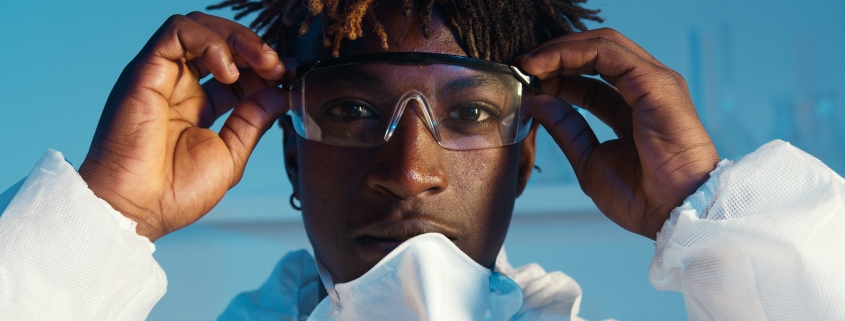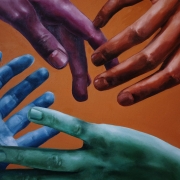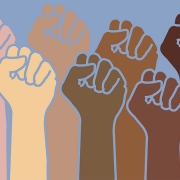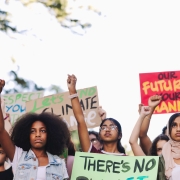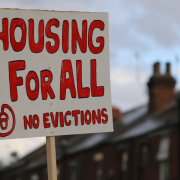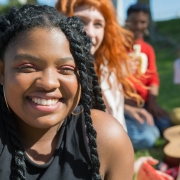Black Vaccine Hesitancy Stems from a Long History of Medical Racism
Dr. Susan Moore, a Black medical doctor, recently died of COVID-19. She documented her experience leading up to her death, including being denied pain medication and proper treatment. Despite being a doctor, speaking in medical terms, and understanding the protocols, Dr. Moore was sent home and died just a couple of weeks later. In her videos, Moore blamed her poor treatment on medical racism. And, while some contest this kind of claim, medical racism in the U.S. has been ongoing since, well, since Black people came to this country in chains. The abuse, neglect, and unethical experimentation is well documented today.
At no time in history has the health of Black Americans equaled that of White Americans. From the days of slavery until now, the White medical community’s policies, practices and prejudices have had an enormous impact on the health of Blacks. When Africans began populating this country, mainly as slaves and second class citizens, many White doctors were taught and subscribed to the notion that Blacks required different treatments because they could tolerate more pain and had unpredictable reactions to medications. Therefore, White physicians were rarely careful or sensitive when treating Blacks.
James Marion Sims, widely recognized as the father of modern gynecology, came to prominence by performing shocking experiments on enslaved women while also forcing them to perform domestic duties and serve as nurses in his clinic. One of his patients was an 18-year-old named Lucy, who suffered incontinence after giving birth. During her procedure a few months later, Lucy was on her hands and knees, screaming in pain for an hour while a dozen doctors watched. Dr. Sims performed the same surgeries on White women, but with anesthesia.
The notion that Black people do not experience pain similar to White people still exists. A 2016 study by the University of Virginia revealed a significant number of White medical students and residents held false beliefs about the biological differences between Blacks and Whites, including that Blacks have thicker skin and do not feel pain as acutely. These notions show up in practice, even among children. A study of nearly one million children with appendicitis revealed that Black children were less likely than White children to receive pain medication for moderate and severe pain.
Another particularly egregious example of medical racism occurred in an operating room at the Medical College of Virginia in Richmond in 1968. A 54-year-old African American factory worker, Bruce Tucker, fell at work and hit his head. He was taken to the hospital unconscious. When the doctors rushed him to the operating room, they did not attempt to revive him. Instead, they harvested his heart and kidney for a white patient who needed them. No effort was ever made to contact Tucker’s relatives. It is still unclear today as to whether Tucker was actually brain dead, as the surgeons declared.
There are many accounts in history books, medical literature, and other periodicals about unethical and immoral medical procedures on Blacks due to racist attitudes and practices. The Tuskegee experiment is a well-known example. From 1932 to 1972, Black men in Tuskegee, Alabama, who had syphilis were recruited for a medical study to determine the course of the disease. The men were informed they had “bad blood” (at the time, the term encompassed several medical problems, including syphilis) and that they would receive free health care from the government. None were ever given antibiotics, despite the treatment being available. This horrific practice only came to light in a newspaper story.
So, here we are in 2021 amid a raging pandemic, where Blacks are dying disproportionately. A vaccine is available and a lot of media attention has been focused on the “vaccine hesitancy” of Blacks. It’s no wonder, considering our history. A cynical view would be that the attention paid to Black vaccine hesitancy is not because of an outpouring of sympathy for our COVID-19 death rate but because the U.S. won’t reach herd immunity without the participation of at least some Blacks getting the vaccination. America needs us but has a hard time admitting it.
Blacks have a lot to offer America. Indeed, look at the votes from the presidential election and the January runoff in Georgia. Black voter turnout is credited with changing the political tide of this country.
If a Black physician can’t get proper care in a hospital, what chance does any Black person have? Non-Blacks must recognize this disparity and speak up and speak out when seeing these racist practices. Non-Blacks should also take some time to study African American history, at least during this month, to discover how much Blacks have done and continue to do for this country. We believe, like any other American, that this is our home. We want to live a productive life and contribute to societal progress. But how long will it take for America to see that Blacks love this country even though this country seems not to love us?
Author:
Cynthia Nickerson
Media Advocacy Specialist
Cynthia Nickerson is a media advocacy specialist at the Institute for Public Strategies, a Southern California-based nonprofit that works alongside communities to build power, challenge systems of inequity, protect health, and improve quality of life.

